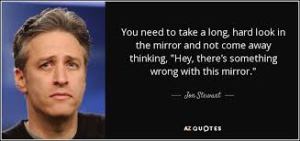 Organizational culture is a difficult dynamic to change. After all, birds of a feather flock together, right? It is for this reason that simply changing the people sitting around your boardroom table is likely a very difficult strategy to employ (albeit not impossible or wrong). While this strategy is the most commonly suggested one by non-profit consultants, I recently found comfort and inspiration from Susan Howlett’s book Boards on Fire! Inspiring Leaders to Raise Money Joyfully.
Organizational culture is a difficult dynamic to change. After all, birds of a feather flock together, right? It is for this reason that simply changing the people sitting around your boardroom table is likely a very difficult strategy to employ (albeit not impossible or wrong). While this strategy is the most commonly suggested one by non-profit consultants, I recently found comfort and inspiration from Susan Howlett’s book Boards on Fire! Inspiring Leaders to Raise Money Joyfully.
In Howlett’s easy to read paperback book, she recounts a story about working with a board that was resistant to fundraising. After trying everything, she simply asked everyone if they would be willing to call two of their friends and engage in a discussion about:
- why they decided to serve on the organization’s board of directors
- what the organization’s mission is and what it does
- a recent organizational success story
At the end of the phone call or coffee meeting, board members were coached to ask their friend if they would mind receiving periodic updates (e.g. email, phone call or in-person visit) about what is going on.
If the board volunteer’s friend was agreeable, then in the subsequent months board volunteers were provided the following shareable things:
- short emails with snippets of good news or links to online articles about the organization
- requests to do something on behalf of the organization (e.g. call legislators or city council representatives)
- invitations to attend something (e.g. facility tour, reception, etc)
In the end, Howlett’s strategy changed board culture and resulted in what she describes as a “board on fire.”
If you couldn’t tell, I highly recommend adding this book to your summer reading list. I suspect it will be a game changer for you if you’re grappling with the question of “how to inspire and engage your board in fundraising success?”
After reading this joyful little book, I was reminded of the following basic truisms:
- fundraising is a learned skill and not something people are born to do
- engagement (e.g. cultivation) is important to fundraising volunteers because when it comes time to asking for money it feels like the pre-solicitation groundwork has been laid (e.g. they’ve earned the right to ask for money)
- cultivation doesn’t happen without significant staff support (e.g. feeding volunteers materials to share, organizing informational house parties, etc)
 If your board is resistant to the idea of fundraising, I encourage you to first take a good hard look in the mirror and ask yourself the following questions:
If your board is resistant to the idea of fundraising, I encourage you to first take a good hard look in the mirror and ask yourself the following questions:
- What boardroom trainings and generative discussions have you helped add to the board meeting agenda and support?
- What cultivation materials have you provided to board volunteers with instructions on how to share with others? (e.g. stories, videos, articles, advocacy opportunities, newsletters, annual reports, etc)
- What cultivation events have you organized? (e.g. lunch-n-learns, facility tours, house parties, etc)
- What individualized coaching have you done with especially resistant board volunteers? (e.g. teaching others how to tell better stories)
- How many cultivation visits have you gone with board volunteers on to model effective storytelling and information sharing? (e.g. modeling for others how to tell better stories)
I know it might be a bitter pill to swallow, but the reason your board might not be excited about fundraising could be because you aren’t excited about it or you aren’t supporting them effectively.
If you have done these things, you might want to ask yourself a different question, “How could I tweak these strategies to make them more effective?”
Have you had success in changing your boardroom culture around the idea of fundraising? If so, what strategies did you employ to create a “board on fire?” Please use the comment box to share your thoughts and experiences. We can all learn from each other.
Here’s to your health!
Erik Anderson
Founder & President, The Healthy Non-Profit LLC
www.thehealthynonprofit.com
erik@thehealthynonprofit.com
http://twitter.com/#!/eanderson847
http://www.facebook.com/eanderson847
http://www.linkedin.com/in/erikanderson847
